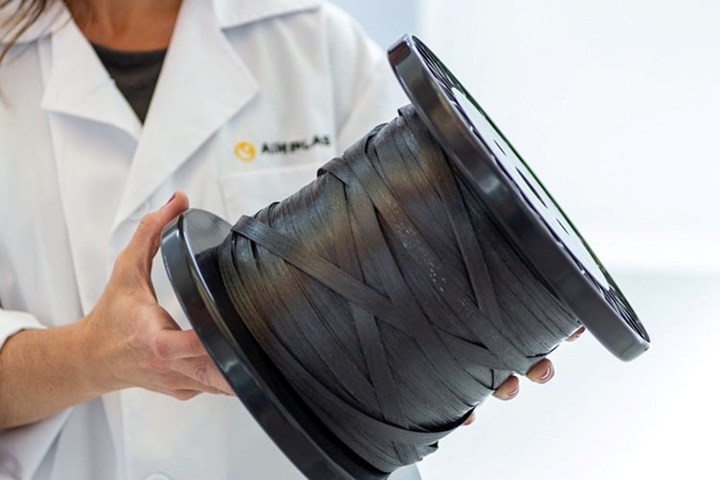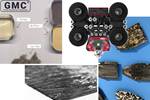Aimplas coordinates FOREST project to facilitate transportation sector decarbonization
Fourteen partners are developing bio-based polymers, additives and recycled carbon fibers for the creation of competitive multifunctional biocomposite solutions.

Photo Credit: Aimplas
, the Plastics Technology Centre (Valencia, Spain) coordinates the , new European Union-funded research that is delving into advanced lightweight bio-based or recycled materials to facilitate the decarbonization of aerospace and automotive sectors. The project consortium is made of 14 partners from eight different countries developing innovative bio-based polymers, additives and recycled carbon fibers for sustainable and safe transport applications. FOREST is committed to using more than 50% sustainable materials in these lightweight products.
The FOREST project will last until May 2026 and is fully aligned with EU 2030 Climate and Energy challenges. FOREST seeks to reduce the structural weight of vehicles by providing light components made of carbon fiber-reinforced plastic. In this way, less fuel and energy consumption will be necessary to cover the same distance, thanks to the development of novel lightweight multifunctional biocomposites as a competitive alternative to conventional composites.
These biocomposite candidates will be obtained using one-shot manufacturing techniques, involving out-of-autoclave (OoA) processes to build and test prototypes with improved multifunctional properties (mechanical resistance, fire-retardant, EMI shielding) for transport applications. In addition, new chemistries based on high bio-based content for polymers and additives will be developed to reduce fossil source dependency.
In addition, FOREST is focusing on efficient methods to recover 100% of carbon fiber waste to develop high-quality semi-finished materials for valuable transport applications. The consortium will also research the influence of multifunctional properties on the biocomposite.
FOREST is funded by the EU’s Horizon Europe research and innovation program. Partners from Spain, France, Germany Turkey, Italy, Poland, Czech Republic and England are collaborating to pave the way towards the decarbonization of mobility. Partners include Aimplas, Arkema, BASF, Clariant, Fraunhofer, IRT Jules Verne, MBHA, Mercedes Benz, Airbus Atlantic Composites, CRF, Angaz Tech, Fenix TNT, Bitrez and Gen2 Carbon.
Also read, “Aimplas joins LIGHTCAR project to develop eco-friendly composite materials.”
Related Content
-
Composites end markets: New space (2025)
Composite materials — with their unmatched strength-to-weight ratio, durability in extreme environments and design versatility — are at the heart of innovations in satellites, propulsion systems and lunar exploration vehicles, propelling the space economy toward a $1.8 trillion future.
-
Plant tour: Airbus, Illescas, Spain
Airbus’ Illescas facility, featuring highly automated composites processes for the A350 lower wing cover and one-piece Section 19 fuselage barrels, works toward production ramp-ups and next-generation aircraft.
-
Carbon fiber, bionic design achieve peak performance in race-ready production vehicle
Porsche worked with Action Composites to design and manufacture an innovative carbon fiber safety cage option to lightweight one of its series race vehicles, built in a one-shot compression molding process.






